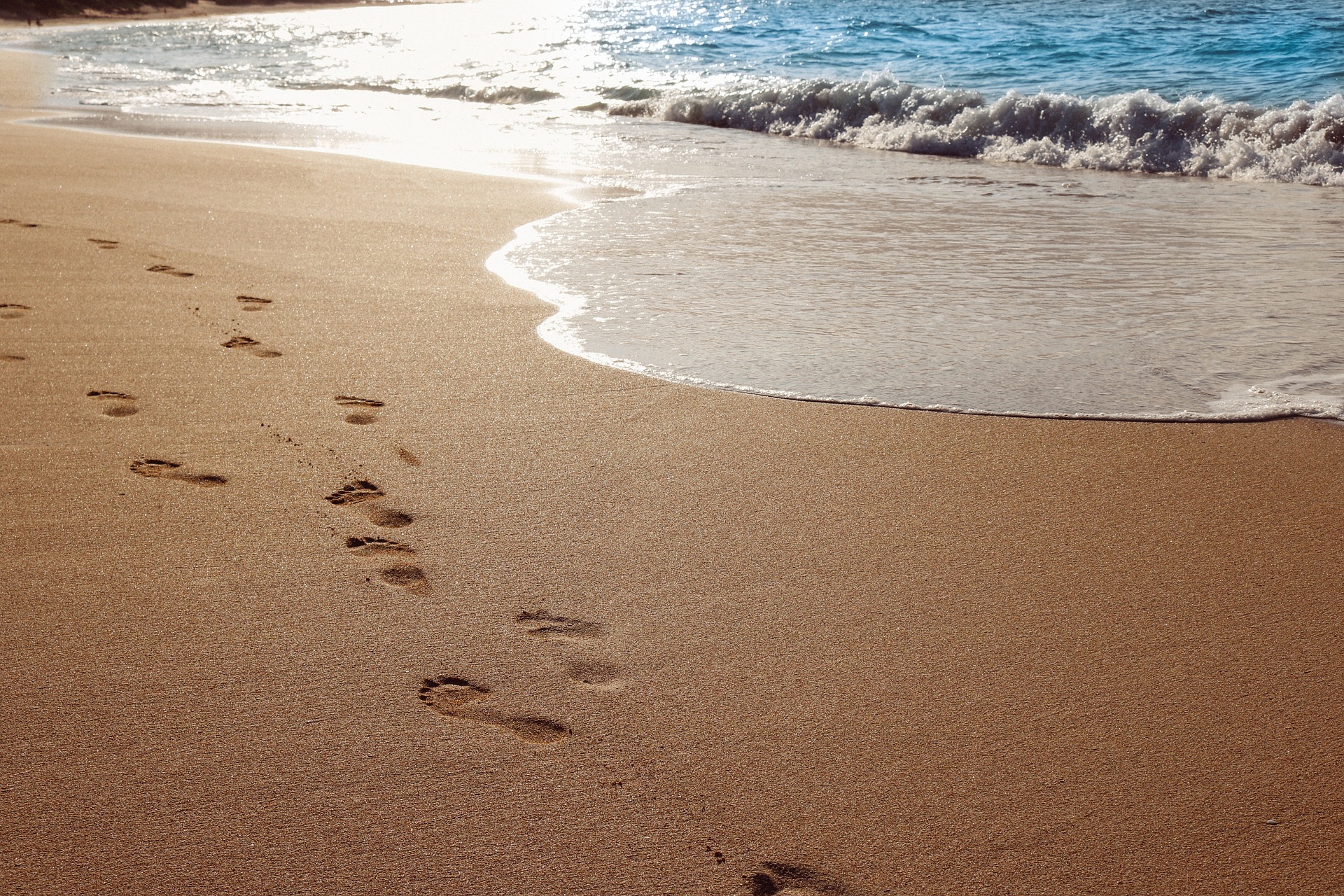
How to Break Free from Points and Miles Devaluation
Hobbyists predominantly focus on points and miles devaluation when wounds are fresh. At Miles to Memories, we also strive to provide points and miles devaluation news and analysis on a timely basis. Our collective passion on the issue is natural, even on a devaluation that seems relatively minor. A points currency may lose value, card annual fees rise, benefits decrease, elite status waters down, a sweet spot disappears – devaluations routinely come at us from all angles. How often do devaluations truly change our behavior, though? Indeed, words can only go so far. It seems our actions as consumers would have more impact than any one article or comment. When devaluations happen, we have plenty of options to respond. What can you do? Here are just a few ideas.
Adapt
Obviously, if you get hit with a devaluation, one thing you can do is change your travel, points, and miles behavior. Here are a few examples:
- After a credit card devaluation and unsuccessful retention offer attempt, you close the account and move your spending to other cards.
- You switch to a different airline or hotel chain based on a devaluation of points, elite status, service, etc.
- A bank devalues earning or redemptions of a points currency, and you switch to other options with the same or other banks.
Certain situations are a bit more straightforward than others. A long-discussed, significant annual fee increase in the future will most likely lead many of us to close multiple Amex Platinum accounts where we have overlapping benefits. I quickly swore off Marriott years ago and have avoided them every since. But breaking up can be hard to do sometimes. You may live in an area or situation where you’re stuck flying a particular airline without any other alternatives. Regardless, simply knowing you can adapt in most cases comes with a sense of empowerment, and don’t hesitate to take action. To borrow from He-Man, you have the Power of Grayskull – wield it as necessary.

Communicate
If you’re not happy about a devaluation, share your thoughts. In my experience, this has been most productive when I do so directly with the loyalty program or service provider. Taking it a step further, I’ve communicated with those who are in a position to address the issue. If I’m unable to speak directly with someone, I’ll email a specificindividual responsible for a travel product or service. I’ve even resorted to snail mail, even though impact of those efforts is unknown. Everyone has a different communication style, so go with what works best for you. Sometimes, simply sharing your perspective on where an experience or program has come up short can lead to a positive resolution.
Mitigate
You can preemptively address points and miles devaluations with a bit of preparation. I primarily do so by decentralizing my points and miles earning and redemption strategy. In that spirit, I often remind myself that my favorite points currency is my biggest weakness. If I had all of my eggs in one points basket and a devaluation hits, of course my strategy would suffer a major setback. For instance, Southwest is my favorite domestic airline. While I collect Rapid Rewards points, I also amass American, Delta, United, and Alaska miles. Amex Membership Rewards is my favorite bank point currency, but I’m just as busy earning and redeeming Chase and Citi points. By simply diversifying, I’m automatically a step ahead of any points and miles devaluation. Any one currency losing value isn’t a huge game-changer; I have other strategies and contingencies already built-in.

Resist
Years ago, I loved airline and hotel elite status. I’ve largely given up on elite status since for a variety of reasons. Since then, I’ve bought elite status a couple times for certain situations – my previous Hilton Aspire card is one example. Obtaining elite status is definitely tempting, though – methods for easily and cheaply obtaining elite levels are seemingly everywhere. Overall, though, I’ve resisted elite status. Since I’m a “General Member” of pretty much every points and miles program out there, elite status devaluations don’t negatively affect me. My entry level status comes with no frills, but it also comes with no risk of disappointment.
Of course, many value elite status. Much good can come from it, but you’re also leaving yourself wide open to devaluation. Indeed, that’s a fair tradeoff for a lot of elite status holders. My “expect nothing and I won’t be disappointed” take is simply not practical to everyone. No doubt, though, whatever extra you obtained today from elite status can be easily taken away tomorrow.
Accept
In my view, managing one’s own expectations is a huge part of this hobby (and life, for that matter). I may sound like Eeyore, but I choose to come from a perspective that everything in our hobby is devaluing always. And if any one thing isn’t devaluing, or dare I say, it appreciates, I’m pleasantly surprised. With most points and miles devaluations, I’ll adapt and overcome. But with others, I’ll say, “of course that happened”, accept the change, and move on. I’ve done so a couple times recently.
Hilton Honors recently changed the breakfast benefit for elite members; they claim this is just a temporary change. I’ve historically leveraged this benefit most often at Hilton Garden Inn properties, my favorite hotel brand. Long story short, it may change my Hilton behavior a bit, but I’ll continue staying at Hilton Garden Inns and paying a few more bucks for breakfast.
As part of their recent program overhaul, Radisson devalued many redemption options by requiring many more points for certain properties. They also introduced a feature for promotional points rates, the RewardSaver program, that actually decreases rates below their previous levels in certain locations and timeframes. I’ll be concentrating on RewardSaver redemptions in addition to infrequent award stays at more expensive properties.

A Bit of Perspective on Points and Miles Devaluation
Hobbyists have put their time and money into loyalty programs that are continually devaluing. Passionate disappointment in devaluations is justified. But for many angles in the hobby, the stuff is free, anyway. In my situation, I periodically take a step back and realize how silly it all is. I often catch myself disappointed in a devaluation for something I I continue to obtain for free, anyway!
Years ago, we didn’t earn points on spending or traveling. We’ve since grown accustomed to obtaining free stuff that we haven’t historically gotten. So when this free stuff devalues, who are we to complain? I know I’ve acclimated to this sense of entitlement on occasion over the years. I don’t think I’m alone here. But the reality is we’ll continue to get free stuff despite devaluations. It’s worth being thankful for whatever we obtain for free via our hobby’s methods.
Points and Miles Devaluation – Conclusion
We cannot prepare ourselves for all points and miles devaluations, but there are easy ways we can lessen the blows from them. Bigger picture, devaluations are just part of what we signed up for. With all the great stuff we get from our hobby – free transport, hotel stays, experiences, discoveries – we must deal with the less pleasurable parts, too. Devaluation is just one of those parts. Overall, though, I’m okay with that deal.
How have you been adjusting to devaluations recently?



[…] Everything Is Always Devaluing – Here’s What You Can Do to Protect Yourself. – Unfortunately, earning miles & points is not like investing. While investments tend to increase in value over time, miles & points WILL devalue. It is not a question of if, but a question of when it will happen. These are excellent strategies to help you cope with the changes and be proactive in minimizing the impact when they occur. I use AwardWallet to keep track of my miles, points, and other loyalty programs. It helps me see all of my balances in one spot so I know how much I have, which ones will expire, and travel credits & free night awards that I have to use. […]
I focus on travel cards that have decent earning rates and greater than 1.0 value when redeemed for travel . . . and I don’t concern myself with specific loyalty programs. For free agents like myself, most travel blogs *dramatically* overstate the value of loyalty program points. If I want to stay at a 4* hotel, and there’s a Hilton property in a convenient location for $220 (or 50,000 points) and another 4* hotel nearby is $170, it makes no sense to say that the Hilton points are worth 0.44 cents (220/50000). In reality, they’re worth 0.34 cents (170/50000). When you use that approach, you see that most points aren’t worth anywhere near what people claim. The only hotel-branded credit cards I would ever consider are those that offer free nights annually, where the value of the free night(s) is greater than the annual fee. The extra points are nice, but the way I see it, disloyalty pays better than loyalty.
CMM,
You may relate to this article.
Missed that one the first time around, but I think it’s spot-on.
Cheers!
Are you suggesting that the $170 hotel is not a chain? If yes, the math you propose is flawed b/c it’s incomplete to limit the calculation to dollars. You would need factors considering these difficult to quantify elements that the Hilton or other chain might be offering vs. the assumed non-chain hotel: (a) often enhanced point earnings on non-room spending during the stay; (b) hotel chain bonuses in effect, both front end (4th or 5th night free) and back end (free night for X stay nights); and perhaps most importantly, (c) the $30 of taxes if not $50 of taxes and resort fees that are waived with the points stay often making the non-Hilton stay higher priced, and the points even more valuable. There probably are another 3 or 4 elements beyond these starters.
Retired Gambler wrote: – First of all everyone goes crazy over the huge initial points/miles offers cards provide recently. However, this helps lead to many of the devaluations. Like any other currency when there is more in circulation the price of limited quantity of goods goes up. People that deal in points/miles calls it devaluation but economists call it inflation. You can’t have it both ways with continued offers and promotions to build point balances without the inevitable devaluation.
*** kudos, kudos, kudos. Nail on the head.
There’s something wrong with a business model in which a sizable portion of revenue is derived from selling miles to credit card issuers. The airlines bet that they can accommodate the subsequent demand through existing unsold inventory … but that prospect only stretches so far.
When you can pick up the miles in a snap of your fingers that one of the airlines best patrons takes a year or more to rack up, you know that there’s a camel out there somewhat straining under a load of straw.
The only defensive move one can make as a flyer with a hefty mile inventory is to lap up such credit cards in order to hopefully keep pace with the ultimate devaluations that are sure to arise as a consequence of such “helicopter miles”.
Great commentary, but I had to pause at this statement: “So when this free stuff devalues, who are we to complain?”
Well, no one with half a brain sees it as “free”. At worst, it’s a rebate on your purchase and something that, speaking for myself, very much factors into which vendors I patronize. As such, it’s value that very much nets against the gross price from which I determine where I’m getting the best deal.
As such, when points are devalued, I’m losing something of value that was a significant factor in my patronage. No question, I have to factor the risk of devaluation in assigning value in the first place. Still, devaluation adjusts my past cost with the vendor and weakens the value of future purchases. That’s rationally a hard nudge to consider switching horses going forward.
Bottom line, this isn’t about entitlement whatsoever. And I trust that travel providers grasp the hard reality of devaluation when it comes to customer retention.
Harry,
When I started with credit cards a few decades ago, I had a no annual fee credit card which provided no rewards. I switched to a no annual fee card that did, so in that sense, the rewards were free. Huge card welcome offers provide thousands of points/miles which previously were not offered when obtaining a new credit card. Rebate, free, other words – in many instances, we are obtaining something now that we previously did not.
Occasionally, I’ve noticed my own frustration when a points currency devalues. I became accustomed to the value of something I didn’t obtain previously. I feel I had a false sense of entitlement. Of course, how others feel and what they call it may be different.
Is devaluation all that real? Looking back since first joining FF programs in the 1980s, I see not only little change, but improvement in my opportunities. The best miles cost for first/business class seats we’ve ever snagged over all those years was 30k per seat; so today, nearly 40 years later, we’re getting better seat experiences for 60k a seat (shopping around), with those miles now earned through huge SUBs, credit cards, and shopping portals – while all of our miles in the 80s and 90s were only through distance traveled, is there any way we would have earned what is easily 3MM miles so far based on distance traveled? No way. So with all that in mind, while yes we do have point-specific devaluations, I question / challenge whether or not we’ve had a systemic devaluation, when evert dollar we spend in 2021 earns us 1X – 15X miles, and sometimes even more, without leaving the couch.
It’s only inflation if the value of points in US Dollars (or Euros, or wherever the company is based) are roughly constant. But that’s hardly the case.
That is why I prefer cash back credit cards. Cash can’t be devalued.
Barnum,
Ditto! But I’m happy to take all those other imaginary currencies, also. 🙂
Realize, we all have our own views of course: (a) cash back isn’t a core part of the hobby, it’s a price discount/rebate on your purchases, and once cash reaches your pocket no matter how it landed there, if you use it, that’s spending, that’s not a “freebee” nor is it “saving” because ultimately when you spend that cash for hotel or air, you’re paying every-day retail. (b) with strategic use (saver business/first class mile redemptions; room use in high-cost cities; status benefits that don’t come with cash-back cards or are much more difficult to earn; etc.), points/miles redemptions exceed the value of a cash-back conversion by exponential levels. (c) the real joy (again, me) comes from getting things that we otherwise would never spend cash on to begin with – e.g., a $10,000 first class seat; would I spend $10k of cash back for that, no way; but getting it for 60,000 miles, I’d do that all day long (and have done it).
Benjy,
Good article and I’d like to add a couple of thoughts:
– First of all everyone goes crazy over the huge initial points/miles offers cards provide recently. However, this helps lead to many of the devaluations. Like any other currency when there is more in circulation the price of limited quantity of goods goes up. People that deal in points/miles calls it devaluation but economists call it inflation. You can’t have it both ways with continued offers and promotions to build point balances without the inevitable devaluation.
– Secondly, these programs are ALWAYS run for the business benefit of the airline/hotel/credit card company. To the extent people derive benefits from the points and miles that is great but changes to the programs are typically only made after much research and analysis on the potential business impact. While people on travel blogs will complain about devaluations they are a very small vocal percentage of the overall member base and the company has made a determination that the changes will not have an overall adverse impact on their business.
– Lastly, one way I cope with devaluations is to adjust my travel plans. It is one thing if you are saving for years for an aspirational trip to some destination, have a specific hotel in mind and had planned to fly a certain airline in business class using points. Devaluation can wreck that plan but what I do is look at other options within the family of hotels for which I have points (changing from a Marriott to a Courtyard for example or picking the same hotel brand a little farther from my preferred destination). Also, I have the luxury of paying cash for any flight or hotel I want so I also do an analysis of the points value versus cash using standard valuations and will pay for the stay/flight if I’m not getting what I perceive to be full value.
Agree devaluations (aka inflation) are always going to happen as well as rule changes to tighten or restrict the programs. IMHO, it is better to accept that is the case, use points quickly (that being said I’m sitting on a couple million right now in my accounts) and be flexible in your travels and expectations. That is healthier than venting and getting upset over something you can’t change anyway (and I bet 99% of the people that say “I’ll never fly/stay with xxxx again” end up doing it so that is an empty threat and doesn’t materially impact the company even if you don’t stay there).
Retired Gambler,
Thanks for sharing your perspective!